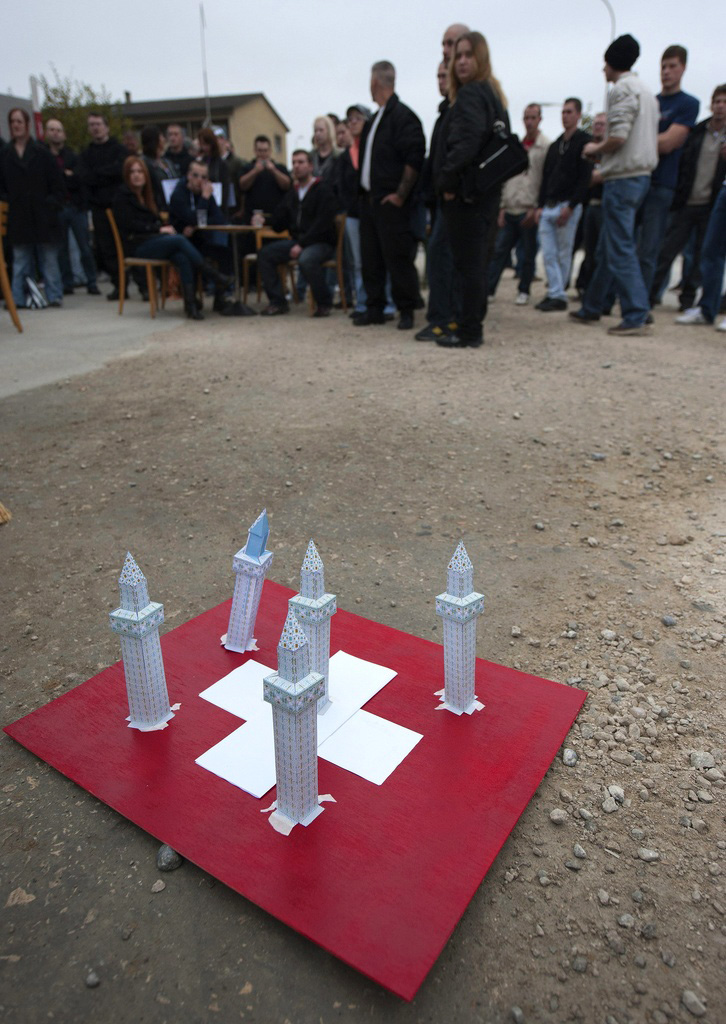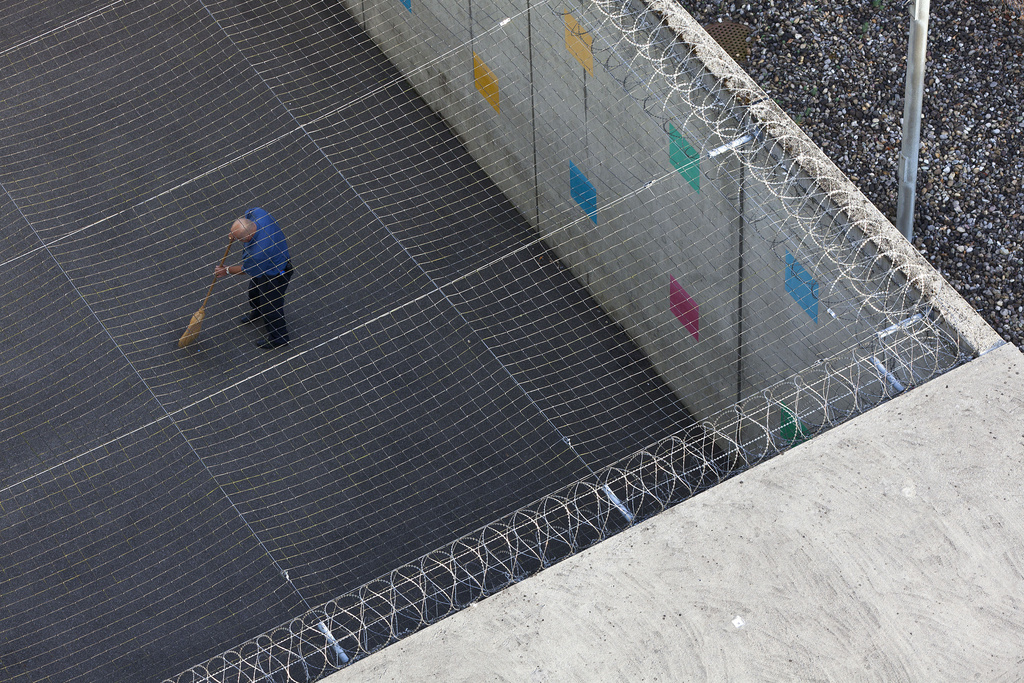Peoples’ will sets the agenda

As Switzerland gears up for parliamentary elections in October, political parties and lobby groups are turning to people’s initiatives to influence the debate.
Considered a cornerstone of Swiss democracy, the initiative system allows any citizen to call for a vote on any issue providing they collect at least 100,000 signatures in support of it.
Originally intended as a means for citizens to propose changes to the constitution, people’s initiatives are perhaps now the most effective instrument stakeholders have for setting the policy agenda in Switzerland.
In recent decades the number of initiatives put forward by political parties and interest groups has steadily increased. According to government statistics, there were proposals for 29 people’s initiatives between 1961 and 1970, compared with 82 between 2001 and 2010 (see graphic).
“Campaign weapon”
Andreas Auer, director of the Aarau-based Centre for Direct Democracy told swissinfo.ch popular initiatives have become a “campaigning weapon” for political parties, large and small.
“The main objective, at least in election years, is to be present in the political debate with an issue,” said Auer. “In this election year there are 14 initiatives pending now which is quite exceptional.”
Over the past 40 years, around half of the initiatives put forward by interest groups and political parties have been put to a nationwide vote. Of these, just ten per cent – 11 out of 121 – have succeeded at the ballot box.
But this is beside the point, vice president of the Green Party, Aline Trede told swissinfo.ch. The popular debate of an issue can be enough in itself to force parliament or the government to draft counter-proposals and change laws.
“Most initiatives you couldn’t win, but they changed something,” Trede said. “The pressure is there for half a year and people talk about it. You really see after a time the snowball effect.”
Radical debate
The diversification of the political spectrum, boosted by a wave of new parties that were founded in the sixties and seventies – there are 12 political parties represented in the national parliament – is behind the increased use of people’s initiatives, Georg Lutz, political scientist at Lausanne University, told swissinfo.ch.
“From a historical point of view the initiatives seem a logical instrument for parties at the left or the far right of the political spectrum,” said Lutz.
“The centre-right parties have no such tradition. Their initiatives often seem rather like desperate attempts to join the race of agenda setting and attention grabbing.”
Auer says the “radicalisation of political discourse” has been a driver behind the increased use of initiatives, particularly at the extreme ends of the political spectrum. As an example, he points to the People’s Party 2009 initiative to ban the construction of minarets on mosques.
“Issues put forward through the initiative process, even if they are not essential for the country… can mobilise people on easy topics,” said Auer.
“They prove to be very successful, not so much because they want to change the law but because they would like to have the benefit of it for the party at the next election.”
People vs government
Auer argues the success of people’s initiatives is proof of Switzerland’s “very weak government”.
“Switzerland is not really governed, it is administered by seven people who are very much occupied in their own ministries but who are not really governing the country,” said Auer.
“They are not really setting the agenda anymore, they are reacting to initiatives most of the time.”
But activists also use initiatives to react to events and issues, and citizens may also challenge laws already passed by parliament by calling for a referendum which could overturn them.
Trede said the Greens had planned action on the issue of construction of new nuclear power stations, but events in Japan pushed the party to move ahead quickly with a people’s initiative which it will ask party delegates to approve next week.
Tighter controls?
That people’s initiatives are now being used to influence debate and opinion rather than to seek constitutional change has given rise to concerns about potential conflicts with Switzerland’s obligations under international law.
This week the government released a report that, if the proposed measures are implemented, would give the parliament greater powers to reject initiatives that “violate the essence” of constitutional and international law.
The move follows the acceptance by the electorate of two highly controversial initiatives: the proposal to ban the construction of minarets in 2009 and of an initiative to deport foreign criminals last November – widely seen as a violation of both the Swiss constitution and international human rights law.
There is also discussion about increasing the number of signatures required to force a vote on an initiative to from at least 100,000 to 200,000.
Trede agrees that “tighter controls” are necessary to ensure basic rights are protected.
“I think people’s initiatives are overused by parties in government, and particularly by the right [wing] parties, which use them to make a majority out of the minority,” she said.
But Auer argues that initiatives are not overused and describes the government proposal for greater controls as a “bad idea”.
“You can’t talk about an abuse. They have the possibility to push an idea forward, sometimes it works, sometimes it doesn’t,” he said.
“Human rights are a question that can only be resolved by judges or courts. To decide if a statute or proposal is violating a liberty, that is not up to a political body like parliament to decide.”
People’s initiatives can be proposed on literally any topic. Over the years there have been proposals for initiatives on everything from a “Switzerland without prying police” to animal rights, reduced hospital costs, a flexible retirement age, and six weeks of holidays.
A person or group must collect 100,000 signatures in support of its initiative in the space of 18 months for it to be put to a popular vote.
The government or parliament can propose a counter-proposal to an initiative topic, which is put to the vote at the same time.
The parliament has the power to declare void initiatives which do not conform to mandatory rules of international law, such as issues promoting genocide, slavery or torture.
The centre-left Social Democrats, who first joined the government in the 1940s, have a long tradition of launching initiatives.
They currently have initiatives pending on a single health insurance, a minimum salary and for the promotion of environmentally friendly technology.
The rightwing Swiss People’s Party is trying to force a vote on gold reserves of the National Bank and on proposed tax breaks for families.
The centre-right Christian Democratic Party hope to force two separate votes calling for tax breaks for families, while the centre-right Radical Party has launched an initiative aimed at “cutting back bureaucracy.”
The Greens look set to collect signatures for an initiative aimed at banning nuclear power stations.
(with input from Urs Geiser)

In compliance with the JTI standards
More: SWI swissinfo.ch certified by the Journalism Trust Initiative





You can find an overview of ongoing debates with our journalists here. Please join us!
If you want to start a conversation about a topic raised in this article or want to report factual errors, email us at english@swissinfo.ch.